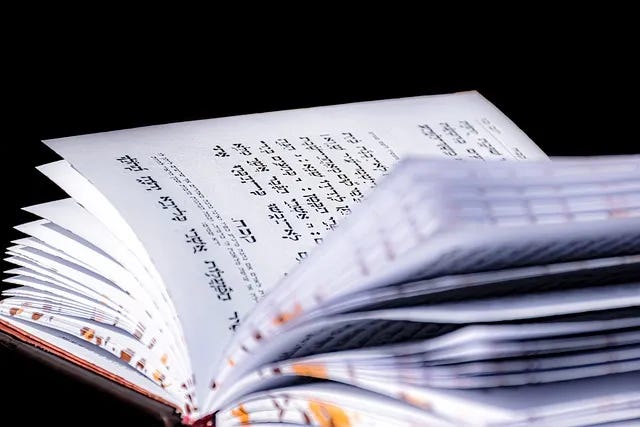How Should We Respond to Tragedy and Crisis?
I’m almost jealous of Jews living in Israel during this crisis: they may face horrifying tests and mortal danger but, from what I’m hearing, they’re rising beautifully to the challenge. And, one way or another, they’re acting. They’re making a difference.
Thousands of miles away, my ability to act is limited. Sure, we can all offer financial support for the many emergency funds out there. But that can’t be enough.
What can we learn from classical Torah sources? Perhaps not entirely what we’d expect.
The Rambam (Taaniyos 1:1-3) rules that it is a positive Torah mitzvah…
“…To cry out and blow horns (חצוצרות) for all troubles that come to a community. […] And this is counted as an approach to teshuva, for when troubles come (if) they should cry out and blow, they will know that it’s all because of their evil actions. […] But if they don’t cry out and they don’t blow, but instead say ‘this is just a natural occurrence’…this is a cruel approach…”
How the mitzvah of blowing horns at such times has been forgotten is an interesting question. Besides its source in the Torah itself, the practice is defined in full detail across multiple Gemaras. I’m not sure when we stopped doing it or why, but I wonder if its absence has limited our ability to properly respond to crises.
The Rambam (Taaniyos 1:17) adds another important detail as part of the schedule for public fast days declared in the face of community crisis:
“The court judges and the elders sit and sift through the city’s behavior from the end of the morning prayers until midday. They remove sinful stumbling blocks, and warn and investigate violent thieves (בעלי חמס) and (other) sins - and separate them - and they (investigate) organized criminals (בעלי זרוע) and bring them down.”
Clearly following the lead of a number of Gemaras, Rambam suggests that the primary focus of our communal attention in such times should be the rule of law. Of course, none of the 613 mitzvos should be ignored, but justice takes priority.
And crying out (זעקה) is definitely still available. But what is it? I doubt it’s just our shemona esrei: halacha requires that that be said quietly. I similarly doubt it’s the uncomprehending recitation of the words of Tehilim: I’m sure that the heart and mind must also be engaged.
I have heard from a significant talmid chochom that it can be appropriate to use Tehilim as a tool to put you in the frame of mind necessary for זעקה. The idea is that thinking carefully about David’s powerful words can focus our minds on our reliance on God, His love of justice, and His endless power to help. Thus inspired, we’ll be ready to engage in legitimate זעקה.
But it’s hard to see Tehilim as an end in itself.
Nevertheless, I wouldn’t discount the value of the shemona esrei. In general, if you even casually read through the text, you’ll be hard pressed to find any common human need that isn’t addressed. And there’s enough fuel to fire a great deal of (quiet) זעקה spread through the berachos. Consider these:
חונן הדעת: Has there ever been a time when political and military leaders have been asked to make decisions with greater and more terrifying consequences? Given how the administration’s normal choices rarely inspire confidence, how can we not beg God to inspire intelligent and productive leadership?
וריבה ריבינו: Does any of us think the military and security path ahead is assured? More than ever, we need God to fight for us.
רופא חולי עמו ישראל: Israeli trauma centers are already overwhelmed, and there could be more coming…
וכל אויביך מהרה יכרתו: What greater need do we face right now?
שומע תפלה: Apparently we need to ask God to hear our prayers. So ask!
המברך את עמו ישראל בשלום: This is the ultimate goal of our prayers right now.
What about Torah study as a physical protection? I’m aware of no traditional Torah source (predating the innovations of the Tzfas revolution) that unambiguously suggests that Torah study protects others. Although it should be noted that the Gemara (Chulin 8a, see Rambam Talmud Torah 6:10) rules that the Torah study of scholars protects themselves (דרבנן לא צריכי נטירותא).



איגרת הרמב"ם לחכמי קהל עיר מארשילייא
וזו היא שאבדה מלכותנו והחריבה בית מקדש. והאריכה גלותינו והגיעתנו עד הלום. שאבותינו חטאו ואינם, לפי שמצאו ספרים רבים באלה הדברים של דברי החוזים בכוכבים, שדברים אלו הם עיקר עבודה זרה, כמו שביארנו בהלכות עבודה זרה, טעו ונהו אחריהן, ודימו שהם חכמות מפוארות ויש בהן תועלת גדולה, ולא נתעסקו בלמידת מלחמה ולא בכיבוש ארצות, אלא דמו שאותן הדברים יועילו להם.
ולפיכך קראו אותם הנביאים סכלים ואווילים.
ודאי סכלים ואווילים היו, ואחרי התוהו אשר לא יועילו הלכו.
Why not blow our horns now? Is there any legal reason against it?